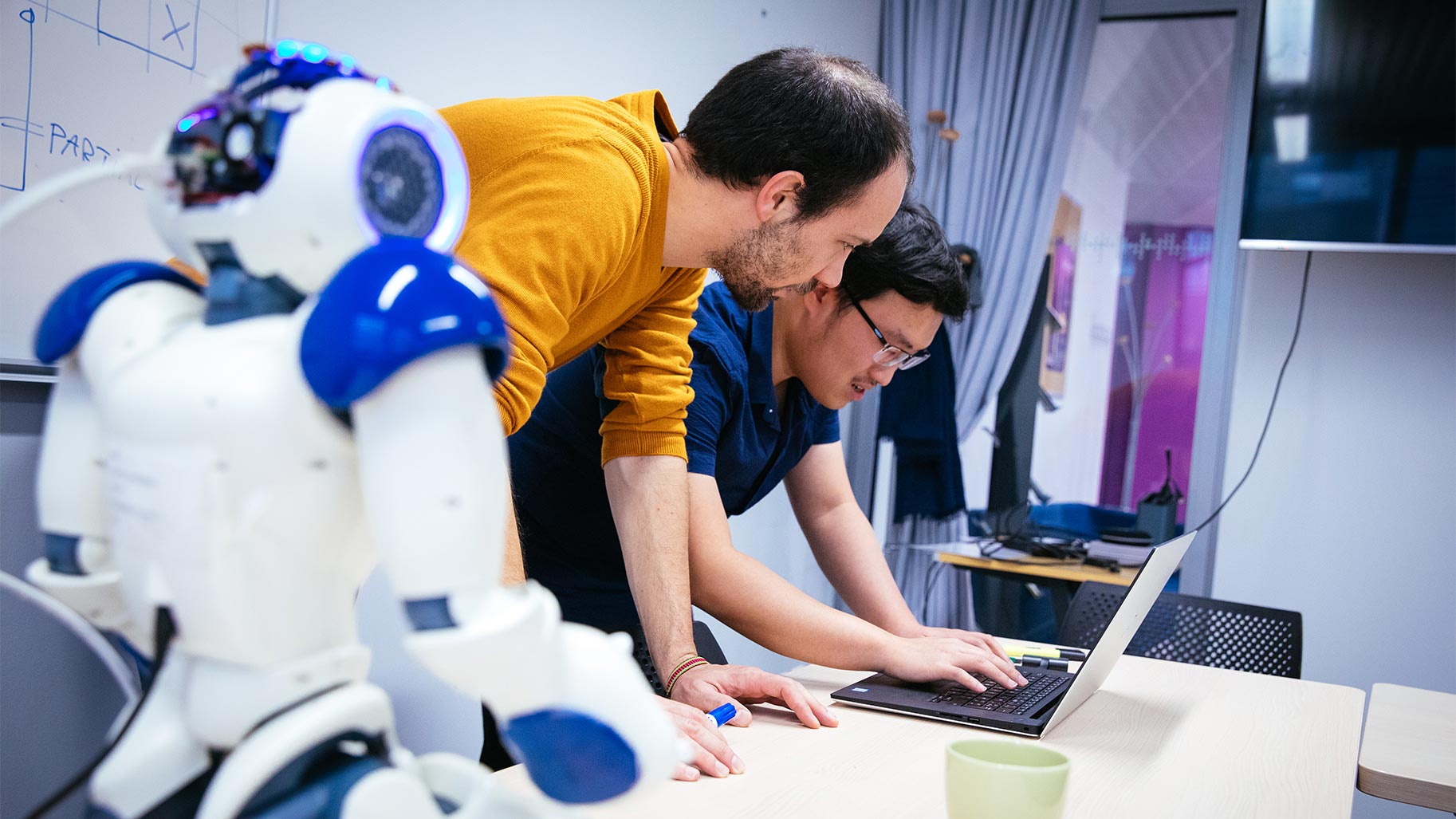Artificial intelligence: what impact will it have on the world of work?
Date:
Changed on 29/09/2022

Anticipating the social impacts of artificial intelligence is a difficult exercise. But this could be set to change very soon. Inria is in charge of coordinating the National AI Research Programme (PNRIA), launched at the end of 2018, and is fully involved in LaborIA, created at the end of 2021 alongside the Ministry of Labour, Full Employment and Insertion. “It is a resource centre and a joint laboratory, which aims to better understand artificial intelligence and its effects on work, employment, skills and social dialogue” explains Isabelle Herlin, coordinator of the PNRIA. “This was the advice of the report on artificial intelligence, written in 2018 by a team led by Cédric Villani, which was the precursor to the PNRIA. LaborIA aims to provide valuable insights into the reality of the field for the Ministry of Labour and the European legislator and to become the contact point in France for the Global Partnership on Artificial Intelligence (GPAI)”. LaborIA shares the objectives of this international, multi-stakeholder organisation, which aims to promote responsible and human-centred use of artificial intelligence.
The new laboratory, which will operate for five years, has already been equipped with its first experimental area, operated by Matrice for two years. “The goal is to analyse and understand the impact of AI systems on work, in organisations of all sizes and in different sectors of activity” emphasises Isabelle Herlin.
The stakes are high, both from a social and economic point of view: the OECD estimates that 32% of jobs will soon be profoundly transformed by automation. The programme will pay particular attention to all aspects of predictive maintenance technologies, based on artificial intelligence, “as they are developing at great speed and have a major impact on workers, who we know can feel disempowered or lose interest in their work as it becomes increasingly automated”, adds Isabelle Herlin.
Several phases will be implemented within the framework of the first experimentation area, in order to evaluate the consequences of the widespread use of AI. “To begin with, we are going to carry out a longitudinal survey on what is happening in organisations in relation to artificial intelligence and the impact of these changes on the relationship between employees and their work, or on professional identities and work groups”, explains Emmanuel Ea, Deputy Director General of Matrice. “Following this, we will look at experimentation in companies or institutions that have already begun to deploy an AI system. We will be conducting interviews with all those concerned by the new tools (employees, managers, HR, social actors, etc.) to learn more about the reactions caused by the automation of certain tasks and to identify good practice or pitfalls to avoid.”
In order to raise awareness, especially among SMEs, Matrice will also organise a series of eight seminars described as “on-boarding workshops” on the potential impact of AI on their employees’ work. The aim is to provide tools to formalise projects and better anticipate the benefits and risks likely to be induced by the implementation of these systems, from the design phase.
“The designers of AI systems are the first to argue the importance of discussing these issues,” notes Emmanuel Ea. “The situation is very clear: the deployment of certain systems, with a high added value, is failing because they are not understood by users and because the issue of work has not been taken into account by decision-makers.”
Currently, the emergence of “robot colleagues” is the subject of much debate. “Companies are motivated by gains in productivity and competitiveness, but we need to get them to also take an interest in business transformation issues, which are essential for the success of projects”, adds Yann Ferguson, scientific leader of LaborIA and a professor of Sociology at Icam. “For companies, one of the difficulties - which has not been widely studied - is to define scenarios of use, alongside and in addition to humans, which were not foreseen when systems were being designed. A human and an AI-based system can enrich each other: humans are able to have a sensitive and adaptable view of the world and the environment, which AI cannot do, while AI shines in its ability to make correlations among very large amounts of data, for example.”
In the future, the research conducted by LaborIA will focus on the consequences of AI on the social dimension of work, through research integrating several fields: recognition of the employee's unique nature, human relations, responsibility, autonomy in carrying out a task and the increased control potentially exercised by the employer. These reflections are crucial in order to clarify objectives and remove ambiguities.